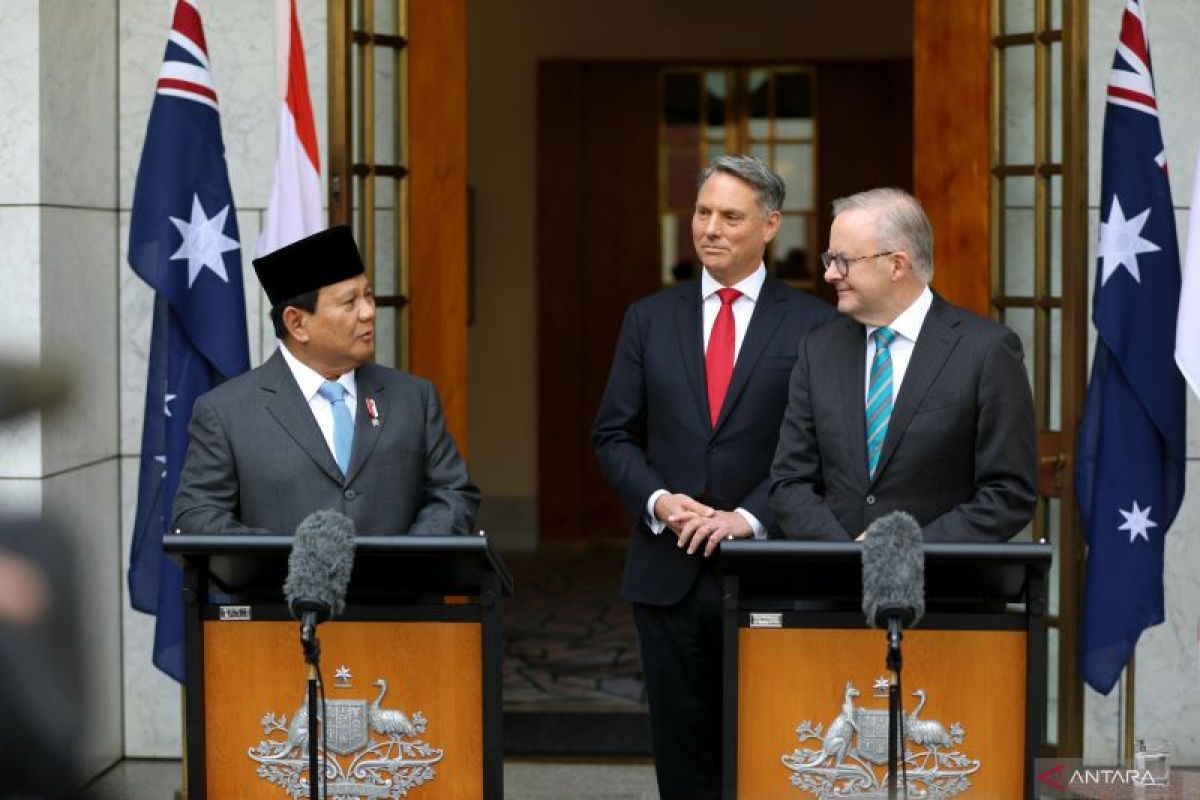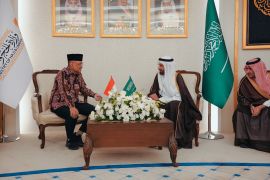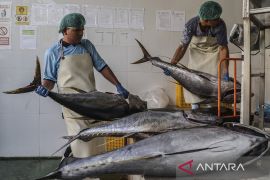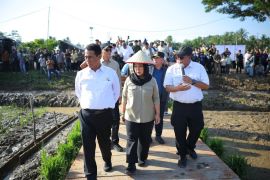The exact details pertaining to the treaty, which is expected to be signed later this month in Jakarta by the defense ministers of both countries, remain sparse. While the new treaty can be expected to significantly bolster defense cooperation, it is also important to know what not to expect in order to temper any unrealistic expectations.
In line with this, it is important to highlight the unlikelihood of the treaty resulting in a military alliance between Indonesia and Australia. There is clear strategic divergence in how the two countries perceive the growing challenges facing the region, particularly in relation to the great power competition between China and the United States, which will complicate any attempt from them to enter into an alliance.
There is also a clear divergence in the way Indonesia and Australia perceive the growing strategic competition between China and the US. Indonesia, as a long practitioner of non-alignment, has stayed away from choosing sides.
Jakarta does not regard China as a clear military threat, nor does it fully embrace the US as a benign security provider for the region. Meanwhile, Canberra recognizes the potential danger that China poses toward the US-led regional order, which has underpinned the country's security and prosperity.
In response, Canberra has calibrated its defense strategy to counter China's ability to project power into Australia's immediate region as well as doubled down on its alliance with the US — most notably via the recent AUKUS partnership.
As for Indonesia, there exist clear disagreements among key policy makers on the nature and extent of the potential threat from China, which precludes the country from allying with the US, or in this case, Australia. The main concern of Indonesia's President Joko Widodo regarding China is economic as China is Indonesia's Number 1 trading partner as well as a major source of foreign investment, which is needed to fund President Widodo's infrastructure push.
His tough stance in response to China's incursions near the Natuna Islands these past few years is mostly aimed at reassuring domestic audiences of his commitment to defending the territorial integrity of the nation and tempering the potential backlash against Chinese investments. The Ministry of Foreign Affairs has also shied away from taking a stance against China as it is keen to uphold the country's neutral status in order to advance Indonesia's role as an "honest broker" in the South China Sea dispute.
The Indonesian Navy and Army, however, see China as a potential threat of a very different nature. The Navy perceives China as an external threat to Indonesia's territorial integrity near the Natuna Islands, which must be answered by increasing the nation's naval capability. Meanwhile, the Army's perception of China as a potential threat is mainly ideological in nature, and thus, the remedy should be strengthening Indonesia's internal security.
As for Australia, while official documents have avoided explicitly naming China as the primary threat, Canberra's new 2024 National Defense Strategy is clearly envisioned as a response against potential threats arising from the Asian giant. Strategic competition between China and the US is identified as the primary security challenge facing Australia in the region.
China's growing military capabilities, including in the realm of sophisticated defense technologies, have eroded Australia's primary strategic advantage in the form of its geographical distance. This, coupled with China's increasing assertiveness, including the use of coercive strategies in its pursuit of interests in the region, constitutes a present danger to the US-led rules-based regional order, which has underpinned Australian security and prosperity since the end of the Second World War.
As a response to this perceived threat from China, Australia is seeking to implement a denial-based defense strategy in the country's northern approaches in order to deter, or, if need be, defeat an adversary's power projection into Australia's immediate environment. The implementation of this denial strategy in the northern approaches would be even more effective should Australia be able to secure Indonesia's cooperation since the Southeast Asian archipelagic nation controls strategic waterways, which are vital to Australia's sea lines of communication.
However, the likelihood of this scope of cooperation being included in the upcoming defense treaty between Indonesia and Australia is low. As previously mentioned, the new defense pact is not aimed at creating a military alliance between the two nations. Indonesia does not adopt the same threat perception as Australia in relation to China. Jakarta currently has little need or interest in pursuing joint warfighting capability with Australia against China as its policy makers have not even come to an agreement on designating China as a threat.
Not a military alliance
The unlikelihood of a military alliance between the two countries is even more apparent when looking at how Indonesia and Australia each perceives the United States. Australia regards its alliance with the US as a key aspect in guaranteeing its security. This fact has been made more evident in recent years with Canberra and Washington moving to deepen defense ties through a number of enhanced force posture agreements as well as AUKUS.
These agreements will not only enhance technological cooperation between the two countries, including allowing Australia to procure nuclear-powered submarines, but will also enhance US ability to project power into the region by opening access to Australian bases for US strategic bombers and nuclear-powered attack submarines. Australia, in this case, clearly regards US military presence in the region as beneficial to its security interest.
The same cannot be said for Indonesia. The US is currently considered an important security partner by Indonesia. Washington helps fulfill several key security needs of Indonesia, notably in terms of training and education of military personnel as well as the supply of advanced weapon systems, which include fighter jets, missiles, and attack helicopters.
However, while it regards the US as an important security partner, Indonesia does not consider, nor does it wish for, the US to be a security provider in the region. It has been Jakarta's long-time security interest to keep its immediate strategic environment in Southeast Asia free of interference from external great powers, which has mainly been achieved through ASEAN and the careful balancing of relations between competing great powers. In Jakarta's view, increased US military presence in the region will not necessarily lead to enhanced regional security, but could instead lead to instability as it may provoke rival great powers, in this case, China, to also increase its military presence in the area.
Furthermore, there is also the issue of trust of Indonesian civilian and military officials toward the US. Historical grievances against the US, such as from its involvement in supporting regional rebellion in Indonesia during the Cold War as well as the arms embargo that Washington imposed against the Indonesian military due to human rights violations in East Timor, have resulted in lingering suspicion regarding US intentions toward Indonesia.
These divergences in how Indonesia and Australia perceive the region's two most important geopolitical actors -- China and the US – reveal the reason why the notion of both countries entering into a military alliance at the moment remains a remote possibility. Without reconciling these differences, a military alliance right now would require either Indonesia or Australia to make significant sacrifices of strategic and security interests.
Nevertheless, even without a military alliance, the upcoming defense treaty should be a welcome development for both. While we look forward to the final draft of the treaty being made public, there are already several areas in which deepened cooperation can benefit the two countries, for instance in education, training, and joint exercises; technological exchange and defense industrial partnership; humanitarian assistance and disaster relief; or the tackling of common security issues, such as counter-terrorism, anti-piracy, and UN-sanctioned peacekeeping operations.
Whatever the forms of defense cooperation the new treaty will bring, we can be confident that closer defense relations between Jakarta and Canberra will only serve to reinforce the security of both countries and the region.
*) Muhammad Teguh Ariffaiz Nasution, LPDP awardee and graduate of Master of Strategic Studies at the Australian National University (ANU)
The views and opinions expressed on this page are those of the author and do not necessarily reflect the official policy or position of ANTARA News Agency.
Related news: Indonesia, Australia team up to prevent marine pollution: Official
Related news: RI, Australia complete negotiation on defense cooperation agreement
Copyright © ANTARA 2024












